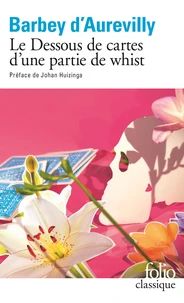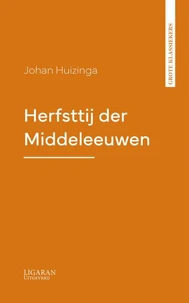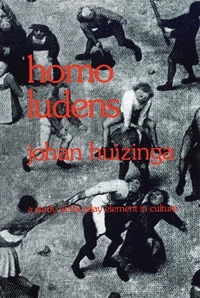Erasmus and the Age of Reformation (UNABRIDGED). optional
Par : , , , ,Formats :
Disponible dans votre compte client Decitre ou Furet du Nord dès validation de votre commande. Le format MP3 est :
- Pour les liseuses autres que Vivlio, vous devez utiliser le logiciel Adobe Digital Edition. Non compatible avec la lecture sur les liseuses Kindle, Remarkable et Sony
 , qui est-ce ?
, qui est-ce ?Notre partenaire de plateforme de lecture numérique où vous retrouverez l'ensemble de vos ebooks gratuitement
Pour en savoir plus sur nos ebooks, consultez notre aide en ligne ici
- FormatMP3
- ISBN8350018899
- EAN9798350018899
- Date de parution23/09/2022
- Protection num.pas de protection
- Taille221 Mo
- Infos supplémentairesaudio
- ÉditeurSlingshot Books LLC
Résumé
This shorter book on Erasmus might be considered a companion to Huizinga's most famous work, The Waning of the Middle Ages. While in his magnum opus he presented a study of the forms of life and thought in France and the Netherlands in the fourteenth and fifteenth centuries, in this one the subject is the central intellectual figure of the next generation after the period which Huizinga called the waning, or rather the autumn, of the Middle Ages.
It was first published in 1924, and so belongs to the same period of the author. Erasmus was, as it appears from many of pages, a man for whom Huizinga had a very special sympathy.
It was first published in 1924, and so belongs to the same period of the author. Erasmus was, as it appears from many of pages, a man for whom Huizinga had a very special sympathy.
This shorter book on Erasmus might be considered a companion to Huizinga's most famous work, The Waning of the Middle Ages. While in his magnum opus he presented a study of the forms of life and thought in France and the Netherlands in the fourteenth and fifteenth centuries, in this one the subject is the central intellectual figure of the next generation after the period which Huizinga called the waning, or rather the autumn, of the Middle Ages.
It was first published in 1924, and so belongs to the same period of the author. Erasmus was, as it appears from many of pages, a man for whom Huizinga had a very special sympathy.
It was first published in 1924, and so belongs to the same period of the author. Erasmus was, as it appears from many of pages, a man for whom Huizinga had a very special sympathy.













